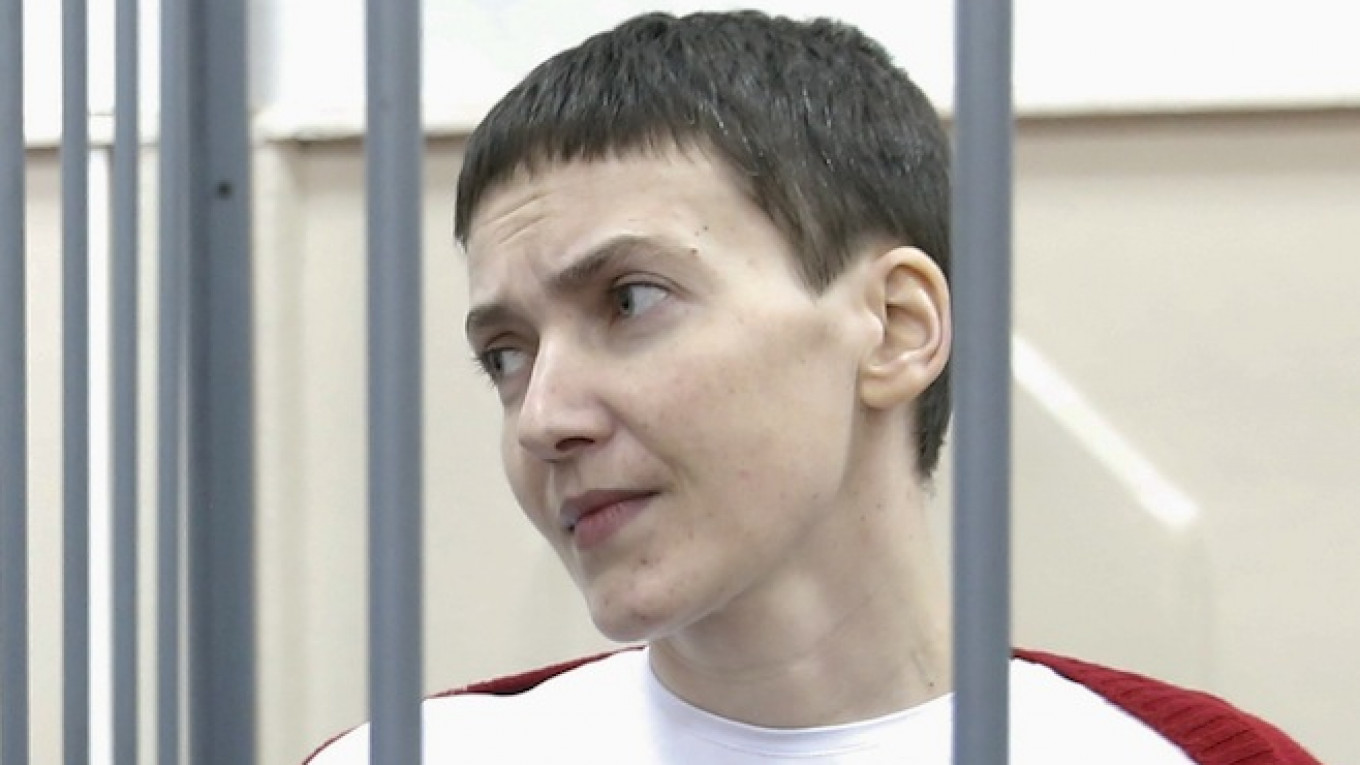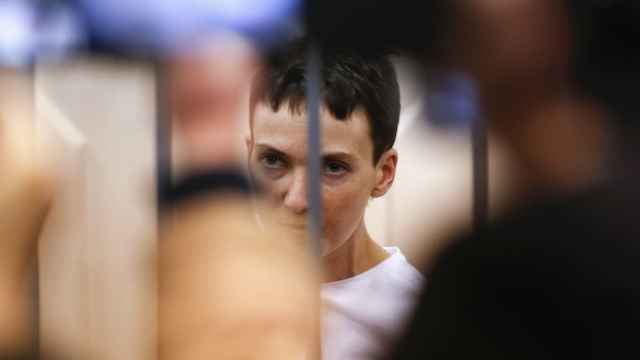German doctors have been allowed to visited Ukrainian military pilot Nadezhda Savchenko, who has been on hunger strike for more than two months in a Russian jail, a German Foreign Ministry spokesman said on Monday.
Savchenko, 33, was captured by pro-Russian forces and handed over eight months ago to Russia, where she was imprisoned on charges of aiding the killing of two Russian journalists in east Ukraine. At home, she has become a symbol of resistance to Russian aggression.
German Foreign Minister Frank-Walter Steinmeier asked Russian President Vladimir Putin to allow the humanitarian visit during talks on a cease-fire for eastern Ukraine in Minsk on Feb. 11-12, spokesman Martin Schaefer said.
Two German doctors visited her on Feb. 15, then held talks with her prison doctors, in which Savchenko was included.
Savchenko is reported to have lost 17 kg (37 lb) since going on a water and glucose diet in December.
Schaefer told a regular government news conference that Germany was extremely concerned about her health, and repeated an appeal for her release.
He gave no further details of her condition, and said it was regrettable that reports had appeared in Russian media despite an agreement to maintain confidentiality.
Russia's Investigative Committee says the pilot provided the coordinates of two Russian journalists who were killed by a mortar attack in June in the Luhansk region of east Ukraine, held by pro-Russian rebels. She denies the accusation, but could be jailed for up to 20 years if found guilty.
Steinmeier is a member of the traditionally Russia-friendly Social Democrats (SPD) and has long ties with Putin, although he has stuck closely to Chancellor Angela Merkel's tough line with Moscow over its backing of separatists in east Ukraine.
A Message from The Moscow Times:
Dear readers,
We are facing unprecedented challenges. Russia's Prosecutor General's Office has designated The Moscow Times as an "undesirable" organization, criminalizing our work and putting our staff at risk of prosecution. This follows our earlier unjust labeling as a "foreign agent."
These actions are direct attempts to silence independent journalism in Russia. The authorities claim our work "discredits the decisions of the Russian leadership." We see things differently: we strive to provide accurate, unbiased reporting on Russia.
We, the journalists of The Moscow Times, refuse to be silenced. But to continue our work, we need your help.
Your support, no matter how small, makes a world of difference. If you can, please support us monthly starting from just $2. It's quick to set up, and every contribution makes a significant impact.
By supporting The Moscow Times, you're defending open, independent journalism in the face of repression. Thank you for standing with us.
Remind me later.






